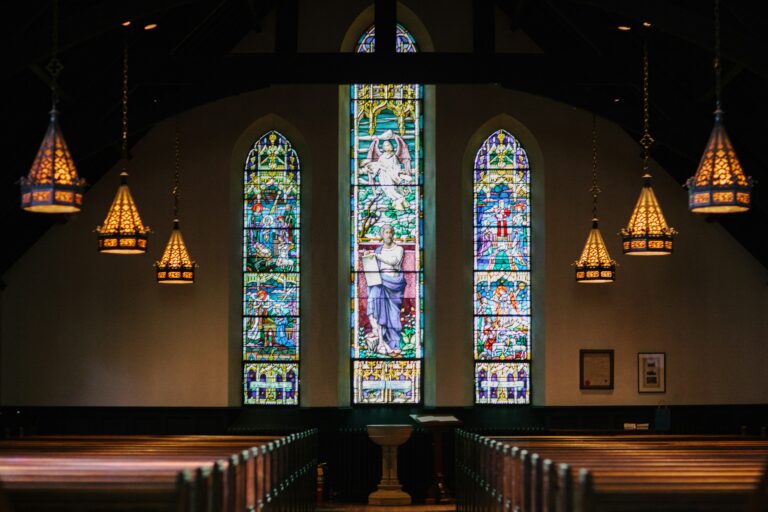Encourage Each Other Toward Love
And every priest stands ministering daily and offering repeatedly the same sacrifices, which can never take away sins. But this Man, after He had offered one sacrifice for sins forever, sat down at the right hand of God, from that time waiting till His enemies are made His footstool. For by one offering He has perfected forever those who are being sanctified. But the Holy Spirit also witnesses to us; for after He had said before, “This is the covenant that I will make with them after those days, says the Lord: I will put My laws into their hearts, and in their minds I will write them,” then He adds, “Their sins and their lawless deeds I will remember no more.” Now where there is remission of these, there is no longer an offering for sin. Therefore, brethren, having boldness to enter the Holiest by the blood of Jesus, by a new and living way which He consecrated for us, through the veil, that is, His flesh, and having a High Priest over the house of God, let us draw near with a true heart in full assurance of faith, having our hearts sprinkled from an evil conscience and our bodies washed with pure water. Let us hold fast the confession of our hope without wavering, for He who promised is faithful. And let us consider one another in order to stir up love and good works, not forsaking the assembling of ourselves together, as is the manner of some, but exhorting one another, and so much the more as you see the Day approaching.
Hebrews 10:11-14 , 15-18 , 19-25
Chapter 10 of the book of Hebrews has a lot packed into it. This text explains the significance of the crucifixion of Christ and how that event brings about the forgiveness of sins. It’s also a call for love and encouragement. Rather than being used to encourage others, it has been used by church leaders to hold people “accountable” for their perceived sins.
This text tells us to encourage each other, toward love and good deeds, and to not give up meeting together. This can be used as an encouragement, but in my experience it’s been used more as a means of guilt. The bit about encouraging each other to love and good deeds is the part that gets turned into “accountability”. There’s a lot of focus on sin among Christians—mostly other people’s sin.

It’s not healthy to put everyone’s actions under our microscope for analysis. This causes us to miss the point. This chapter is leading up to the point, “let us hold fast to the confession of our hope . . . for he who has promised is faithful”.
A Power Play
In reality when Christians push “accountability” it really means the most power-hungry people control the most dutiful people. If someone stops attending church the rumor mill wonders if they’re even still a believer. If someone is uncomfortable with being held “accountable” for potential future sins, they are surely hiding something.
In writing this I did a fact check on my own assumptions with a search on the phrase “Christian accountability”. I opened seven pages from the page one of results. Five of those seven referenced this text and focused on addressing sin in each other’s life. One article insisted that nothing, even thoughts, should be kept from an accountability partner. The abuse dished out in the name of Hebrews 10 could be its own article.
Joy and Liberty
I’d like to re-cast this text in the light of joy and liberty. It is for freedom that Christ has set us free. We are to be each other’s biggest fans. Encouraging each other shouldn’t be a way of putting pressure on people. Our role isn’t to mold others into the kind of Christian we imagine they should be. We shouldn’t be concerned with trying to measure a continually increasing spiritual growth in our neighbor. We shouldn’t run a fine-toothed comb through our neighbor’s actions looking for the error so we can guilt them.
No! Following these instructions should be just like it reads on the surface. As I wrote about in Rules Much?, approaching spiritual growth as a checklist misses the mark. We should approach each other looking for the good, the grace. If there’s a setback in your sister’s life, that’s an occasion to sit with her through that hard time, rather than lecture. If there’s wrongdoing that affects you, that is what needs to be confronted. Although, the sin police will often switch over to verses on forgiveness if it’s their wrongdoing that’s brought to light.
Supportive Community
If churches were a place where I could meet people who were my biggest encourager, a non-judgmental shoulder to cry on, or people with whom I could celebrate, nobody would have to tell me to keep meeting together. Maybe this instruction exists because as far back as the early church, Christians were already experiencing the need to distance themselves from controlling and abusive Christians.
The author reminds the original readers that we don’t have to keep atoning for our sin, Christ did that. Instead, we should love and encourage each other. I find it sad that these verses are used to guilt people when that’s the social condition that this text is addressing.
What creative ideas come up for you when you “consider how to provoke one another to love and good deeds?” Have you spent time considering for yourself how you might encourage people—truly encourage them? Has someone used these verses to shame you?
Let us hold on to our hope, for Jesus is faithful!
Three people photo by Priscilla Du Preez 🇨🇦 on Unsplash
Chalk drawing photo credit: by sydney Rae on Unsplash





